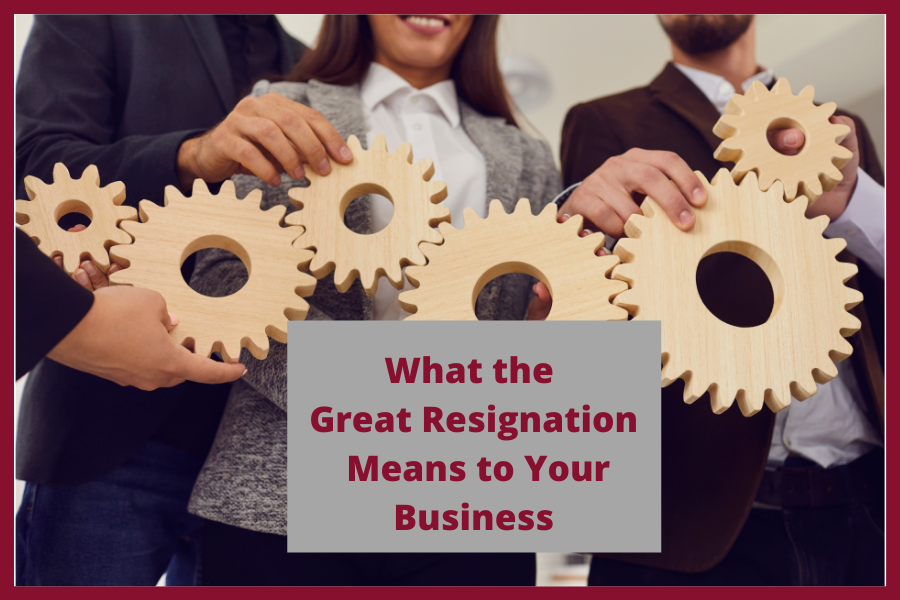
Buying and Selling a Business in a Changing Market

Do you have a Question?
Ask below. One of our Investors or Advisors will Answer!
Buying and selling a business is a challenging and calculated process that is influenced greatly by market conditions. On one hand, business buyers must consider the historical performance of the business they intend to purchase and gauge that against financing options and other acquisition challenges to make a judgment call on how the business would perform post-acquisition. Business owners, on the other hand, must consider the money they are making now, and weigh that against a pay out and their need or desire to work less.
So what are the conditions in today’s market affecting business sales for buyers and owners?
Here in the middle of 2022 we have a stock market that is trending downward, with interest rates trending upwards. We have continued labor shortages. The cost of goods sold is spiking and supply chain challenges confound producers and consumers alike. We are a couple of years past the beginning of a pandemic which has resulted in a hangover effect within normal business cycles disrupting them and taking a year or more to ripple through all levels of supply and demand. Furthermore, the pandemic has had an “Etch-a-Sketch” effect on some markets, erasing what once worked and creating new opportunities and markets where none existed before.
Declining stock markets affect small business sales
While it’s relatively consistent over the long term, as investors consider the stock market as an asset class for investing, in the short term many agree it does not appear to be a viable option for investing due to economic and political uncertainty and other factors, resulting in a bear market.
As a business intermediary serving business owners in the sale of their small businesses, we are seeing more inquiries for our businesses for sale from investors stating they would rather invest in a small business rather than the stock market because it’s a more controllable asset with higher return options. This is a good opportunity for small business owners seeking to sell their small businesses if they are priced appropriately.
But because businesses are generally valued on cash flow, business owners who command a purchase prices far in excess of what their peers are asking still see long periods of days on the market. And because small business investing continues to be a risky proposition, those which are priced appropriately are getting more buyer interest, and more offers as a result.
Rising Interest rates affect buying a business
At the same time we’re seeing small business sale interest increasing due to the equity market asset class appearing less attractive, we are also seeing interest rates on the rise creating less attractive financing options for purchasers.
Prior to and for most of the pandemic the availability of commercial and SBA loan financing at historically low rates for small business had greased the gears of business transactions. When businesses are financed by third parties, there exists an opportunity to shift the risk of non-payment beyond the buyer and the seller. Most business owners prefer to get paid in full at closing and most business buyers would prefer not to pay the full amount at closing.
But as interest rates go up, financing options become less attractive through the banks as deals simply don’t pencil out as well as they did when interest rates were lower. Much like the real estate market, several points on a loan can make a difference on debt service of thousands of dollars a month on a multimillion-dollar loan.
Furthermore, with SBA and commercial loan rates normally being adjustable, the fear of rising interest rates adds further instability and concern for using these types of financing vehicles. The result is often more offers which include seller financing, where the buyer asks the business owner to be the bank because traditional bank terms are now less attractive.
This market effect pushing towards seller financing is often less attractive for business owners seeking to sell their business, unless they are looking for an annuity of payments. Most often they are seeking a lump sum to invest in their next business. It also takes a great amount of trust and fit between the buyer and seller of the business when seller financing is involved.
Labor shortages and Increasing Cost of Goods Sold affect business transactions
Perhaps the greatest hangover effect of the pandemic in the 2022 business year has been the rise in shipping costs and the rise in the cost of goods sold plus the increased cost and lack of labor to run businesses. As a transaction agent for businesses I’ve never seen such a more pronounced effect on business than these two factors combined.
Many very strong businesses cite one or both of these issues as limiting factors for growth and the ability to sell because it’s a problem not just for the current owner, but one the next owner will have to deal with as well.
The Ibba and M&A source Q2 Market Pulse survey cites these factors as the most significant negative factors on transactions. While these issues probably will not last forever, they are having a significant effect on cash flow and reducing value in businesses.
On the flip side, those small business owners who have found solutions to supply chain issues and labor shortages have stood out and have increased their business’s value. Such businesses are taking market share from those businesses in the majority who have failed in these categories. There’s certainly no shortage of demand for quality businesses that have teams of quality staff, and access to goods that are in demand.
A final effect of the cost of goods challenge has been a surprising one: an oversupply of inventory for the strong businesses.
Those businesses who have unprecedented demand and who have overcome supply chain issues are over ordering when they can. Much like the toilet paper hoarding phenomenon early in the pandemic, there’s a natural tendency to order in advance especially when news reports highlight supply chain challenges. The consequences for a business sale is a complicated one. In general businesses are sold with a “normal” level of inventory, but when a business sells with excess inventory it must be financed on top of the business.
Many banks and buyers are not comfortable with this added expense.
Excess inventory can be a benefit for an established business that can navigate supply chain issues, but when it comes to selling a business it can appear as a poor return on equity. As a business intermediary we must look at working capital closely to determine the appropriate method to deal with excess inventory, as well as work in process issues that come up during business transactions as we navigate a changing marketplace.
In Conclusion
As we take a broader view on business transactions during a changing market, it’s clear these current issues will work themselves out in time.
The research indicates that multiples of cash flow and EBITDA don’t move more than a few points per quarter, and while the number of transactions goes up and down on a regular basis, business markets tend to be more stable and offer investors attractive outcomes.









 Remember when you took your business loan and signed that huge stack of papers? One of them was likely a
Remember when you took your business loan and signed that huge stack of papers? One of them was likely a 



























